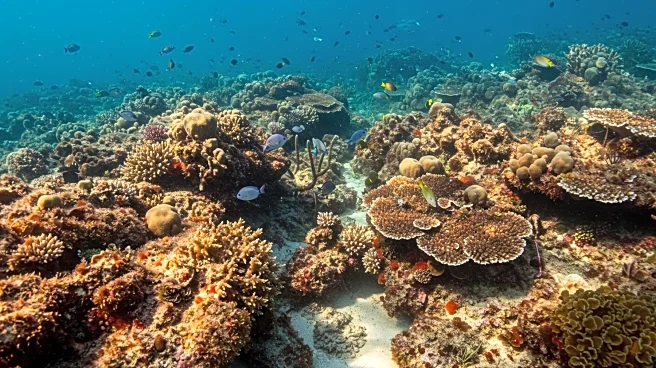What is the story about?
What's Happening?
Researchers have discovered a symbiotic relationship between bacteria and archaea in Shark Bay, Western Australia, which may reflect an early step in the evolution of complex life. These microbes form multi-layered communities known as microbial mats, surviving in harsh conditions. The study suggests that bacteria and archaea may have become mutually dependent, leading to the formation of eukaryotic cells. The research involved growing these organisms in lab conditions, revealing interactions through nanotubes and nutrient exchanges.
Why It's Important?
This discovery provides valuable insights into the evolution of complex life forms, potentially offering clues about how eukaryotic cells, which make up all animal and plant life, originated. Understanding these interactions could have implications for evolutionary biology and the study of life's origins. The findings may also influence research in biotechnology and synthetic biology, where harnessing microbial interactions could lead to new innovations.
Beyond the Headlines
The study raises questions about the nature of microbial interactions and their role in evolution. The nanotubes observed between bacteria and archaea suggest a complex relationship that could have been crucial in the development of multicellular organisms. This research may prompt further exploration into the genetic and biochemical pathways involved in these interactions, potentially leading to breakthroughs in understanding life's complexity.

















